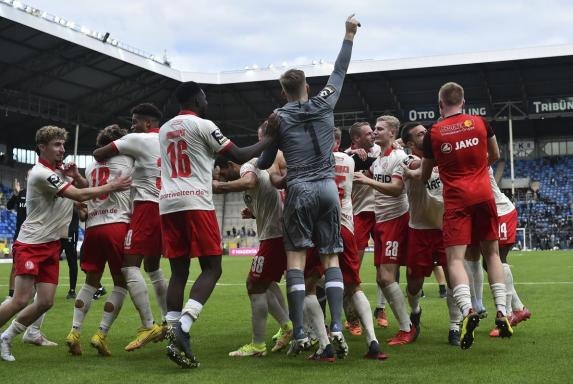Rot-Weiss Essen has caught itself after a false start – and made the right corrections. In addition, the calmness of those in charge has helped. Comment.
Rot-Weiss Essen is going into the winter break with a good feeling. After promotion to the 3rd Division, however, the team had to seriously consider at the end of August whether it would be enough for RWE in the new league.
At home, there were heavy defeats against SV Elversberg and Viktoria Köln. Defensive lapses, a harmless offensive and key players from the Regionalliga season who had not arrived in the 3rd Division.
That was the first balance after the six games at the start, all of which RWE failed to win. Then the Essen team got its act together, making a few course corrections that did not miss their mark. And a measure that proved to be spot on.
But one thing after the other: First and foremost, it was important that the Esseners kept their cool. After the six matches they had not won, there was unrest in the surrounding area and the question of whether Christoph Dabrowski was the right man for the squad. It should also be noted that the fans always stood behind the team, there were no whistles, no resentment.
RWE officials were always behind Dabrowski
And those in charge never left any doubt that they were completely convinced of Dabrowski. The also showed a learning effect. After the first games did not go as desired, corrections were made. The team was given a somewhat different tactical face, which was to pay off.
Just like the course correction in squad planning. There’s no shame in being wrong sometimes. But you have to be able to admit something like that. And above all, you have to be able to pay for the correction.
RWE has managed to do both. The club did not take any risks, because it had the economic basis to go further. And those in charge realised that they had to step up at the end of the transfer period because Plan A had not worked out in terms of personnel.
In the first games, everyone saw that the team lacked experience in the situation at the time. They were brought in three times (Andreas Wiegel, Clemens Fandrich, Felix Götze) – and in positions where there was a real need.
